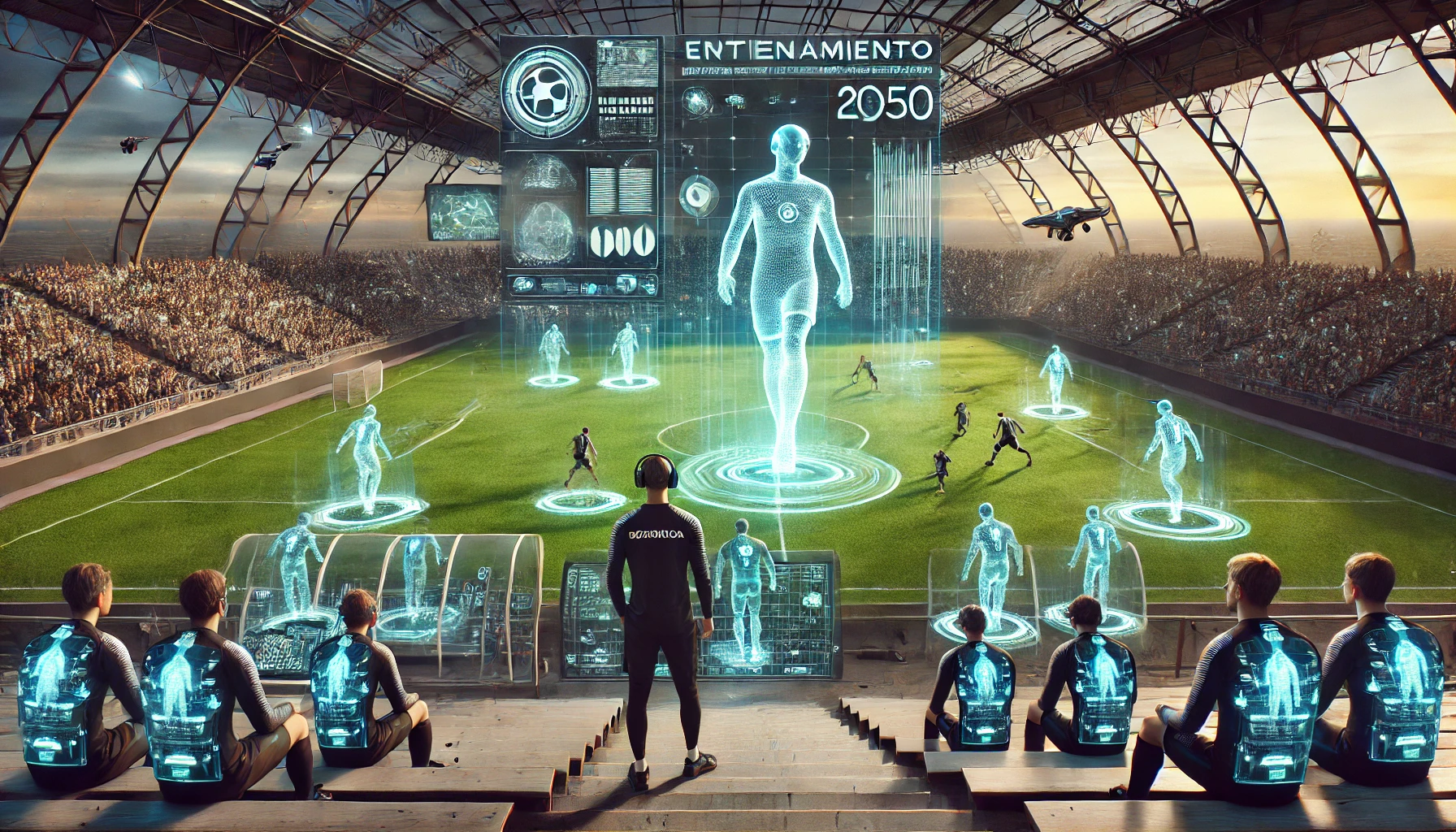In 2050, the Pons Method will be deeply integrated into the most advanced practices in football, becoming a pioneering approach that will adapt to the realities of a highly automated, interdisciplinary and artificial intelligence (AI)-centric sport. Some possible advances include:
Hyperconnected Football: AI and Total Neuroscience
Advanced AI for decision-making: Coaches will work with artificial intelligence systems that will process data in real time during matches, providing optimized strategies in seconds. These tools will be designed to integrate into the philosophy and principles of the Pons Method, while maintaining its human and tactical basis.
Personalized neurotraining: Direct brain stimulation through neural interfaces will optimize reflexes, decision-making and performance under pressure, enhancing mirror neurons and promoting brain plasticity.
Bio-Optimized Players
Bionic and biotechnology integration: Players could have access to regulated physiological enhancements to extend their careers and reach sustained performance peaks, following ethical and sustainability principles of the Pons Method.
Constant biomechanical monitoring: Sensors integrated into the body and clothing will measure the player’s physical and emotional state in real time, adjusting training and strategies automatically.
Holographic Training and Immersive Simulation
Virtual training spaces: The Pons Method will be implemented in completely digital environments, with high-fidelity holograms and simulations that will replicate any possible game scenario. Players will be able to practice against real rivals’ playing patterns and historical scenarios.
Tactical augmented reality: During matches and training, players and coaches will use real-time visualization systems that will highlight ideal movements, passing lines, and optimal positioning, directly linked to the Method’s offensive and defensive automation principles.
Ultra-Advanced Gamification
Virtual Global Competitions: Trainings will include gamified challenges against players from other teams or academies around the world, using shared simulated environments.
Scoring based on complex metrics: Each player will have a “dynamic progression index” that will assess their technical, tactical and mental development, promoting motivation through individualized achievements and rewards.
Complex and Organic Game Models
Self-evolving tactics: Supported by artificial intelligence, game models will automatically adjust based on opponent conditions, weather, or team fitness. This is deeply aligned with the principles of dynamic-complex adaptability of the Pons Method.
Play in closed ecosystems: The football of the future could include variations such as three-dimensional spaces or climate-controlled environments to practice in extreme conditions, integrating the philosophy of controlled variability of the Pons Method.
